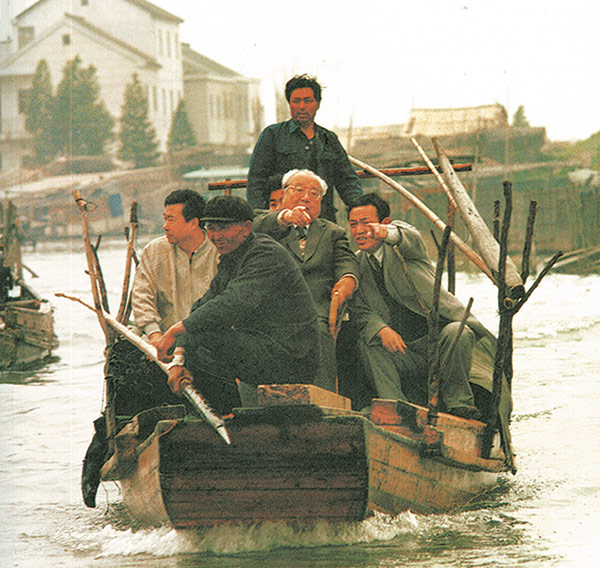

Zhou himself was enrolled in the department in 1986. His college life was filled with frequent field studies, from township and village enterprises in Kunshan, Jiangsu province, to urban neighborhood economy in Shenyang, in northeastern Liaoning province.
They usually spent several months visiting locals during the day and at night sharing their findings among teachers and classmates. By comparing their observations with that of their teachers, the students accumulated the academic experiences essential to extend or deepen their thinking and cultivate a sociological imagination.
Extensive field research and an individualized way of teaching has been highlighted through the past four decades, according to Zhou, who's now passing on the tradition to younger generations. He recalls bringing the students to interview female migrant workers, often separated from their children, but working to earn a better living for their families.
"The students were touched and they wouldn't criticize the mothers for leaving their children behind in the countryside or for not giving enough care and company. On the contrary, it proves that a strong family tie maintains China's stability with a huge migrant population. It's a typical Chinese phenomenon," Zhou says about field study that has helped sociology-majored students to see the real world and change the way they think.
He adds that this idea stemmed from an insight that Fei, who kept doing field research almost until he was 90, came up with in the 1990s.
It's natural that the sociology students at Peking University attach great importance to China's rural problems, says Xiao Shijian, who was among the first undergraduates of the department.
Born and brought up in the urban environment of Beijing, a two-month stay in rural Yunnan during the first year of college and the three months spent in Wuxi, Jiangsu province, in the last year influenced her career choice. In 2017, she quit the job as CEO of Greater China for Klipsch Group, a US audio equipment manufacturer and founded a rural primary school in Zheng'an county, Southwest China's Guizhou province, living there and exploring a local education mode that's rooted in the soil and suitable for rural children.
She says she is applying sociological and anthropological theories and methods in her educational exploration, and the training in college has taught her to always respect people and their culture.
Scriptwriter Mei Feng, who entered the department in 2000, describes his writing practice as doing field research in real life, and that the education has helped him to grasp subtle changes in society and "eliminate his writing from being superficial".
According to Zhou, the department now has 13 teaching and field research bases around the country, and the spirit, as Fei put it, "of learning from practice (field study), to touch the temperament of society "is shared among the faculty and the students.